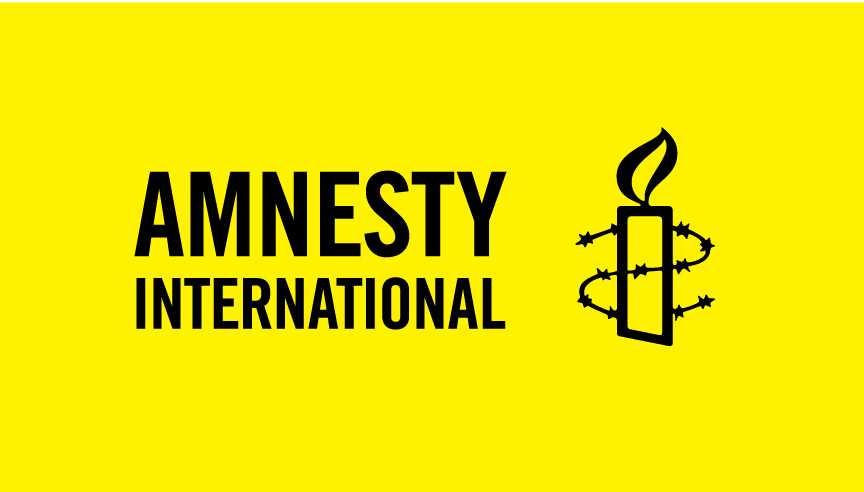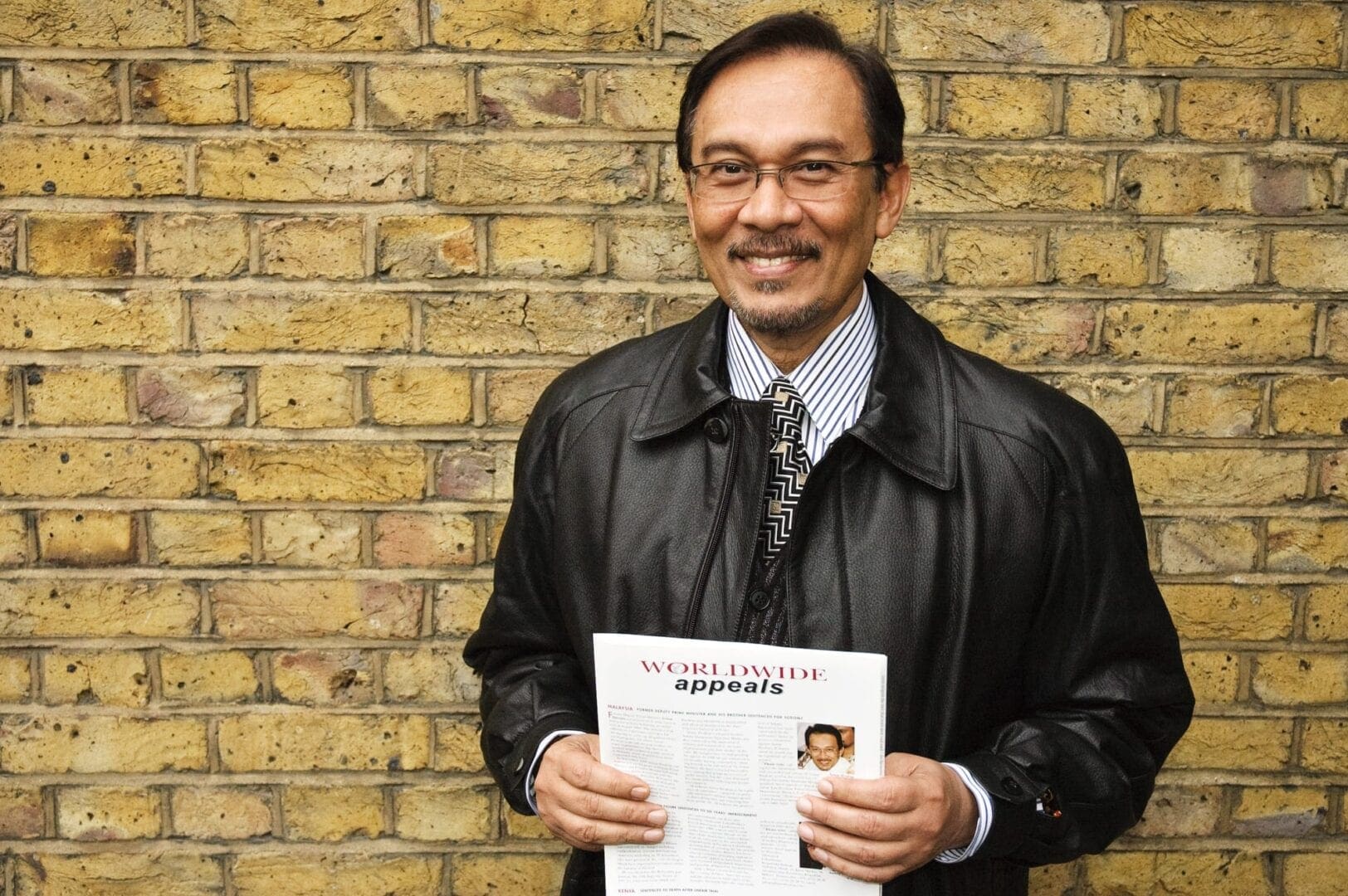The following information is based on the Amnesty International Report 2021/22. This report documented the human rights situation in 149 countries in 2021, as well as providing global and regional analysis. It presents Amnesty International’s concerns and calls for action to governments and others.
OVERVIEW
Malaysia is a federal constitutional monarchy. It has a parliamentary system of government selected through regular, multiparty elections and is headed by a prime minister. The king is the head of state, serves a largely ceremonial role, and has a five-year term. The kingship rotates among the sultans of the nine states with hereditary Malay rulers. The general election on November 19, regarded by observers as generally free and fair, saw no party win a majority of seats in parliament. Anwar Ibrahim, chairman of the Pakatan Harapan coalition, assembled a multiparty government and became prime minister on November 24.
The Royal Malaysian Police maintains internal security and reports to the Ministry of Home Affairs. State-level Islamic religious enforcement officers have authority to enforce some criminal aspects of sharia. Civilian authorities at times did not maintain effective control over security forces. There were reports that members of the security forces committed some abuses.
Significant human rights issues included credible reports of: unlawful or arbitrary killings; torture or cases of cruel, inhuman, or degrading treatment or punishment by government entities; harsh and life-threatening prison conditions; arbitrary arrest and detention; problems with the independence of the judiciary; arbitrary or unlawful interference with privacy; serious restrictions on freedom of expression and media including unjustified arrests or prosecutions of journalists, censorship, and enforcement of criminal libel; restrictions on internet freedom; substantial interference with the freedom of peaceful assembly and freedom of association; severe restrictions on religious freedom; restrictions on freedom of movement; serious government corruption; serious government restrictions on or harassment of domestic human rights organizations; lack of investigation of and accountability for gender-based violence, including widespread female genital mutilation/cutting; significant barriers to accessing reproductive health; trafficking in persons; violence against lesbian, gay, bisexual, transgender, queer, or intersex persons; enforcement of laws criminalizing consensual adult same-sex sexual conduct; and child labor.
The government arrested and prosecuted some officials engaged in corruption, malfeasance, and human rights abuses, although civil society groups alleged continued impunity.
BACKGROUND
Malaysia’s location has long made it an important cultural, economic, historical, social, and trade link between the islands of Southeast Asia and the mainland. Through the Strait of Malacca, which separates the Malay Peninsula from the archipelago, flowed maritime trade and with it influences from China, India, the Middle East, and the east coast of Africa. Prior to the 14th century, several powerful maritime empires existed in what is modern-day Malaysia, including the Srivijayan, which controlled much of the southern part of the peninsula between the 7th and 13th centuries, and the Majapahit Empire, which took control over most of the peninsula and the Malay Archipelago between the 13th and 14th centuries. The adoption of Islam between the 13th and 17th centuries also saw the rise of a number of powerful maritime states and sultanates on the Malay Peninsula and the island of Borneo, such as the port city of Malacca (Melaka), which at its height in the 15th century had a navy and hosted thousands of Chinese, Arab, Persian, and Indian merchants.
The Portuguese in the 16th century and the Dutch in the 17th century were the first European colonial powers to establish themselves on the Malay Peninsula and Southeast Asia. However, it was the British who ultimately secured their hegemony across the territory and during the late 18th and 19th centuries established colonies and protectorates in the area that is now Malaysia. These holdings were occupied by Japan from 1942 to 1945. In 1948, the British-ruled territories on the Malay Peninsula except Singapore formed the Federation of Malaya, which became independent in 1957. Malaysia was formed in 1963 when the former British colonies of Singapore, as well as Sabah and Sarawak on the northern coast of Borneo, joined the Federation.
The first several years of the country’s independence were marred by a communist insurgency, Indonesian confrontation with Malaysia, Philippine claims to Sabah, and Singapore’s expulsion in 1965. During the 22-year term of Prime Minister MAHATHIR Mohamad (1981-2003), Malaysia was successful in diversifying its economy from dependence on exports of raw materials to the development of manufacturing, services, and tourism. Former Prime Minister MAHATHIR and a newly formed coalition of opposition parties defeated Prime Minister Mohamed NAJIB bin Abdul Razak’s United Malays National Organization (UMNO) in May 2018, ending over 60 years of uninterrupted rule by UMNO. Since 2018, Malaysia has undergone considerable political upheaval with a succession of coalition governments holding power. Following legislative elections in 2022, Anwar IBRAHIM was appointed prime minister after more than 20 years in opposition. His ruling coalition holds a two-thirds majority in the Malaysian parliament.
KEY ISSUES
In February, news outlet Malaysiakini was fined RM500,000 (approximately US$119,000) for contempt of court for comments posted by its readers criticizing a court judgment. The Communications and Multimedia Act (CMA) and Sedition Act were used to criminalize dissenting voices. In March, the government enacted an ordinance to combat “fake news” in relation to Covid-19, which expired with the lifting of the state of emergency in August.1opens in a new tab Activists, journalists and others faced investigation, prosecution and harassment for criticizing the authorities. In July, refugee rights activist Heidy Quah was charged under the CMA for a comment posted on social media in 2020 highlighting poor conditions at an immigration detention centre. In July, police raided the offices of the makers of an animated film on police violence. On 29 July student activist Sarah Irdina Arif was detained under the Sedition Act and questioned for social media posts supporting “Lawan”, a movement protesting against the government’s handling of Covid-19.
The Peaceful Assembly Act (PAA) and Covid-19 control laws and regulations were used to prevent and disperse peaceful protests. In March, police interrogated demonstrators following a protest calling for the voting age to be lowered to 18.2opens in a new tab In May, protesters calling for parliament to be reconvened were investigated under the PAA. In July, police threatened to arrest doctors at one medical facility who were participating in a nationwide hour-long strike in support of better job security. The strike was called off as a result. In the weeks preceding the resignation of Prime Minister Muhyiddin Yassin, the crackdown on the right to peaceful assembly intensified.3opens in a new tab Dozens of people were investigated in relation to a “Lawan” protest in the capital, Kuala Lumpur, on 31 July. Many others reported being harassed by police in their homes. On 2 August riot police blocked 107 opposition members of parliament (MPs) from entering the parliament building, which had been sealed off after the government said Covid-19 cases had been detected. Police called in for questioning MPs who were part of the protest that led to the blockade and fined them for violating Covid-19 control laws. On 19 August, police dispersed a “Lawan” vigil for Covid-19 victims and arrested and fined 13 people for violating Covid-19 control laws. Two participants were charged under the Police Act for behaving in “a riotous, indecent, disorderly or insulting manner.” Organizers cancelled a subsequent “Lawan” protest. The police nevertheless obtained a court order barring 34 activists from entering Kuala Lumpur and blocked roads leading to the city.
The harsh treatment of refugees, asylum seekers and migrant workers continued with immigration raids, arrests, detentions and deportations to countries where returnees were at real risk of human rights violations. In February, the government deported 1,086 migrants and asylum seekers to Myanmar in defiance of a court order and despite increased violence and threats of persecution following the military coup there. In June, hundreds of people were detained during a series of raids on areas with high numbers of undocumented migrants. Crowded immigration detention facilities placed those detained at increased risk of contracting Covid-19.4opens in a new tab The government also disseminated anti-Rohingya posters and other anti-migrant messages online. In May, the Canadian government announced that it was investigating allegations of forced labour in palm oil plantations and glove factories in Malaysia.
At least 19 people died in police custody or shortly after release during the year. A 40-year-old man died in April after being hospitalized on release from police detention the previous month. According to media reports, the autopsy found that A Ganapathy’s death was due to injuries sustained while in police detention. The government claimed that investigations were ongoing, but no one was charged. According to government figures, 105 people died in police custody, prisons and immigration detention centres between January 2020 and September 2021.
The persecution of LGBTI people and activists continued. In January, the government said it was considering increased penalties for “wrongdoings” by LGBTI people. In June, the government’s “anti-LGBTI task force” warned of action against those “promoting the LGBTI lifestyle.” As of June, 1,733 individuals had been sent to government “rehabilitation” camps run by the Islamic Development Department (Jakim) with the aim of changing the “lifestyle” and “sexual orientation” of LGBTI people. In October, Nur Sajat, a transgender woman, successfully claimed asylum in Australia. She alleged that she was sexually assaulted while in police detention in January.
Indigenous people in Kelantan state protested plans to build a dam, with community leaders alleging lack of free, prior and informed consent. In July, an Indigenous community filed a judicial review against the Selangor state government challenging a notice to evict them from their land to make way for a tourism project.
Progress towards the abolition of the death penalty stalled although a moratorium on executions remained in place. Mandatory death sentences continued to be imposed, including for drug-related offences.
Relevant Links
- “Malaysia: Government must immediately withdraw draconian fake news ordinance”, 15 March 2021
- “Malaysia: Drop investigations into the Undi18 protest”, 30 March 2021
- “Malaysia: PM’s resignation must restore respect for freedom of expression and assembly”, 17 August 2021
- “Malaysia: Immigration raids on migrant workers during lockdown 3.0”, 3 June 2021
- For more information visit the Amnesty.org Country page





